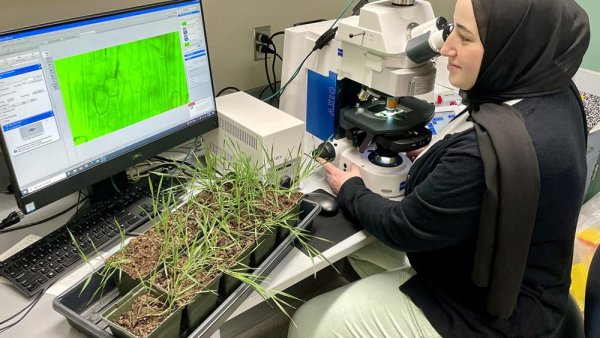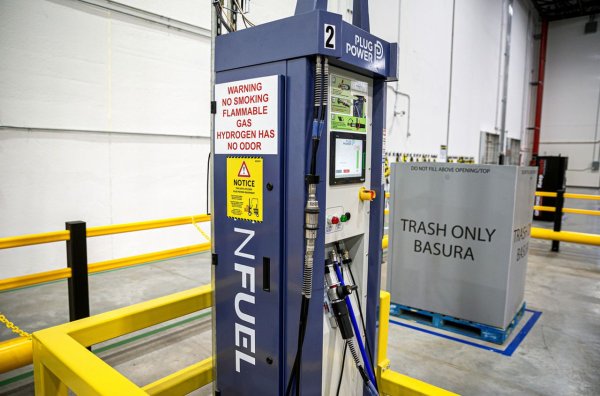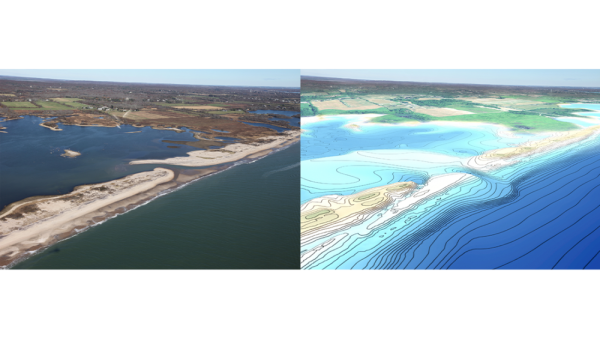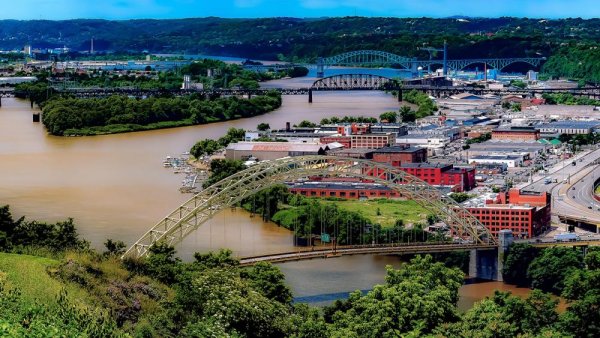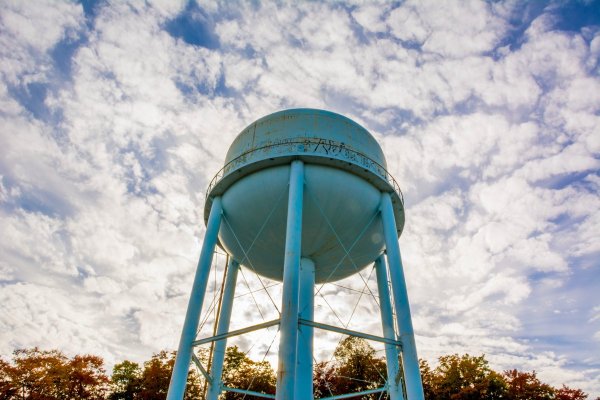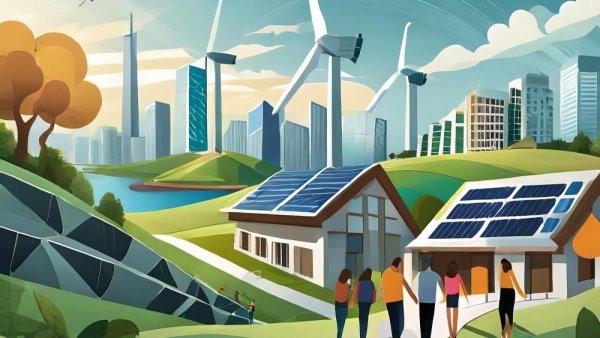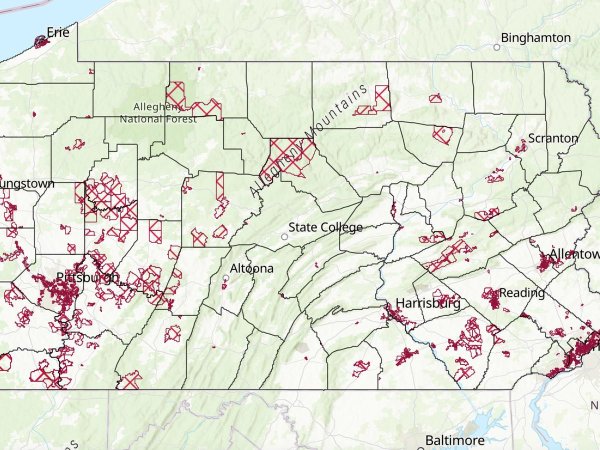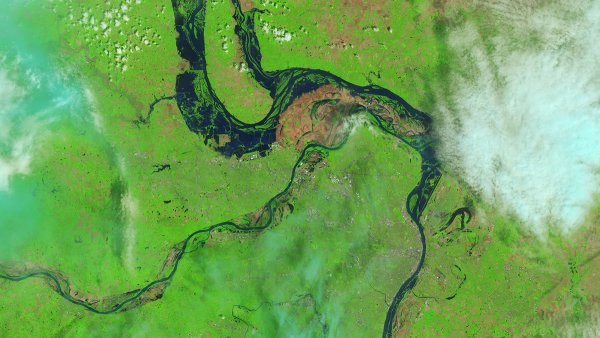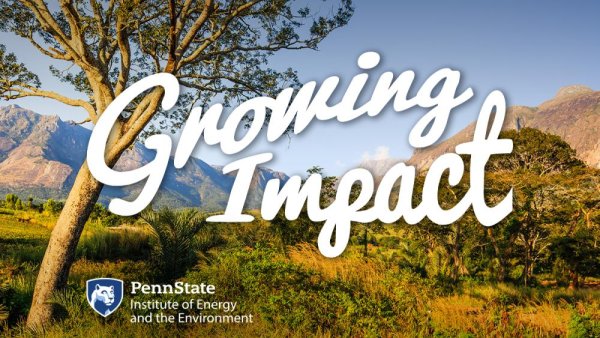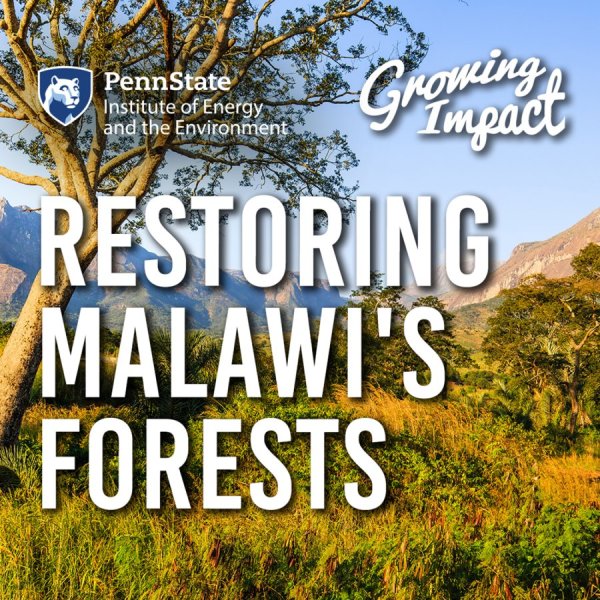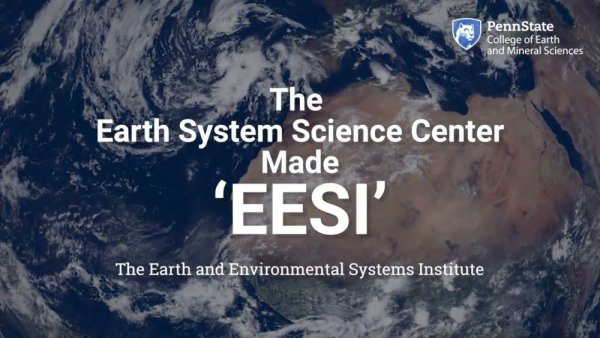$1.45M NSF grant to fund new research into how grasses thrive in dry climates
| psu.edu
A new $1.45 million grant from the National Science Foundation will allow Penn State researchers, including undergraduate students, to explore how pores on plant surfaces work and might be engineered to enhance photosynthesis and efficient water use.
Mentions
-
Charles Anderson
-
James Wang
Professor of Information Sciences and Technology, College of Information Sciences and Technology
NSF grants nearly $1 million to Penn State and CMU for environmental hazard study that uses fiber cables
| bizjournals.com
A team of researchers from Penn State University and Carnegie Mellon University have teamed up to develop an environmental hazard monitoring and detection system that relies on existing, in-ground fiber optic cables. This article mentions Tieyuan Zhu, Associate Professor of geosciences.
Mentions
Three things Pennsylvania needs to be ready for hydrogen
| pennlive.com
Pennsylvania needs to take hydrogen safety seriously. This op-ed was co-written by Seth Blumsack, professor of energy and environmental economics and international affairs; Jeremy Gernand, associate professor of environmental health and safety engineering; Hannah Wiseman, professor of law; and Michael Helbing, staff attorney with the Penn State Center for Energy Law and Policy.
Penn State researcher and partners earn collaborative coastal resilience grant
| psu.edu
Peter Stempel, associate professor of landscape architecture at Penn State, has partnered with researchers at the University of Rhode Island to assess how nature-based solutions reduce coastal vulnerability to sea level rise while preserving ecosystem services in Charlestown, Rhode Island.
Mentions
Using machine learning, existing fiber optic cables to track Pittsburgh hazards
| psu.edu
Existing fiber optic cables used for high-speed internet and telecommunications, in combination with machine learning, may be able to help scientists track ground hazards in Pittsburgh. The National Science Foundation awarded a $937,000 grant to a team of Penn State and Carnegie Mellon University researchers to further develop the low-cost monitoring approach.
Mentions
Groundwater: Deep need, deep trouble
Groundwater is a hidden resource that many people have come to rely on. Large amounts of it are used to supply drinking water to communities and irrigation to farmlands. However, with groundwater being pumped faster than it is replenished and climate change exacerbating its decline, that commodity is in danger of disappearing.
Collaborative landscape design approach may improve resiliency, human well-being
| psu.edu
A framework called regenerative landscape design may improve how complex, interconnected environmental and social challenges, such as climate change and biodiversity loss, are addressed, according to a new study led by Penn State researchers.
Mentions
-
Erica Smithwick
-
Lisa Iulo
-
Leland Glenna
-
Jennifer Baka
Associate Professor and John T. Ryan, Jr. Faculty Fellow, College of Earth & Mineral Sciences -
Charles Andrew Cole
-
Jose D. Fuentes
-
Carter Hunt
-
Jason Kaye
-
Douglas Bird
 Douglas Bird
Douglas Bird -
Christopher Blaszczak-Boxe
 Christopher Blaszczak-BoxeAssociate Professor, Howard University; Former Penn State researcher
Christopher Blaszczak-BoxeAssociate Professor, Howard University; Former Penn State researcher -
Caitlin Grady
 Caitlin GradyFormer Assistant Professor, Civil and Environmental Engineering
Caitlin GradyFormer Assistant Professor, Civil and Environmental Engineering -
Klaus Keller
 Klaus KellerFormer Professor, Geosciences
Klaus KellerFormer Professor, Geosciences
What living in a PA environmental justice area means
| spotlightpa.org
Pennsylvania’s updated environmental justice policy aims to provide at-risk communities with better communication on development projects. This article quotes Jennifer Baka, associate professor of geography.
Mentions
-
Jennifer Baka
Associate Professor and John T. Ryan, Jr. Faculty Fellow, College of Earth & Mineral Sciences -
Michael Mann
 Michael MannFormer Distinguished Professor, Meteorology and Atmospheric Science
Michael MannFormer Distinguished Professor, Meteorology and Atmospheric Science
Rivers are warming up and losing oxygen
| eos.org
Researchers used deep learning to fill in the gaps of “patchy” water quality data, revealing decades-long trends toward warmer and less oxygenated rivers that could have worrisome consequences.
'Growing Impact' examines landscape restoration in Malawi
| psu.edu
The latest episode of the "Growing Impact" podcast discusses landscape restoration as a potential natural climate solution for Africa.
Mentions
-
Ida Djenontin
-
Tong Qiu
 Tong QiuFormer Assistant Professor, Ecosystem Science and Management
Tong QiuFormer Assistant Professor, Ecosystem Science and Management -
Judith Kamoto
 Judith KamotoAssociate Professor and College Director, Bunda College of Lilongwe University of Agriculture and Natural Resources
Judith KamotoAssociate Professor and College Director, Bunda College of Lilongwe University of Agriculture and Natural Resources
Growing Impact: Restoring Malawi's forests
Malawi is facing environmental challenges including deforestation, soil erosion, and unsustainable farming practices. While Malawi has pledged to restore degraded lands, it is not clear if any efforts are accomplishing what they intended. A research group is using Malawi as a case study to better inform policies and practices in forest landscape restoration.
Documentary film on research institute’s history, impact to premiere on Nov. 6
| psu.edu
The documentary film, “ESSC made ESSI,” will have its premiere screening on Monday, Nov. 6. The documentary details the history of the Environmental Systems Science Institute, which began in 1986 as the Earth System Science Center.
Mentions
-
Susan Brantley
-
Alan Taylor
-
Erica Smithwick
-
Jennifer Baka
Associate Professor and John T. Ryan, Jr. Faculty Fellow, College of Earth & Mineral Sciences -
Richard Alley
-
Seth Blumsack
-
Robert Crane
-
Kenneth Davis
-
William Easterling III
-
Bernd J. Haupt
-
Christopher House
-
Sarah Ivory
-
James Kasting
-
Lee Kump
-
Douglas A. Miller
-
David Pollard
-
Eric Barron
 Eric BarronFormer President, Penn State
Eric BarronFormer President, Penn State

